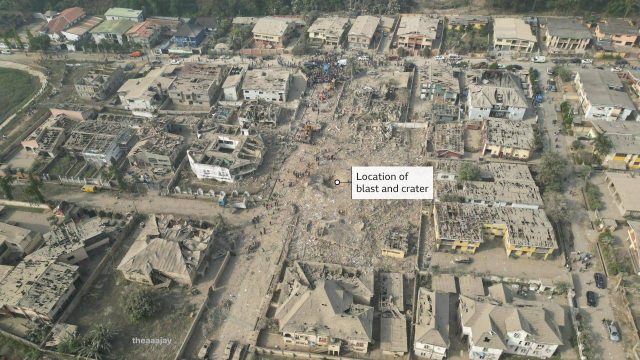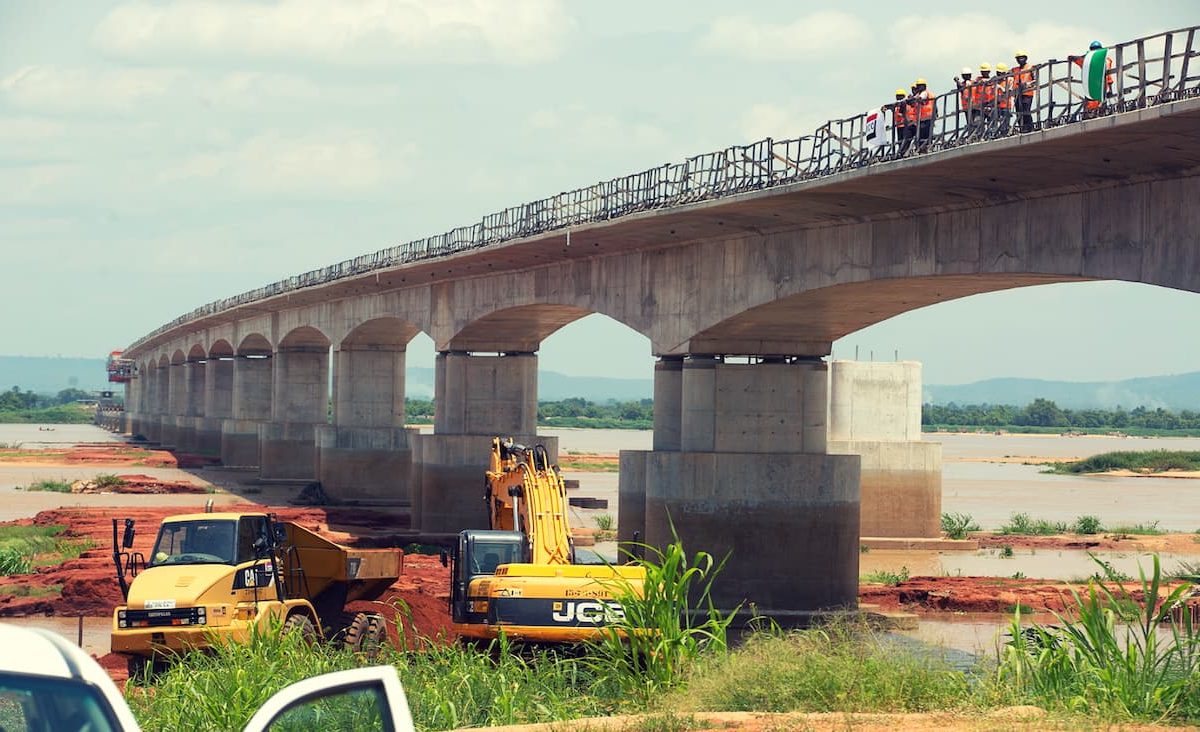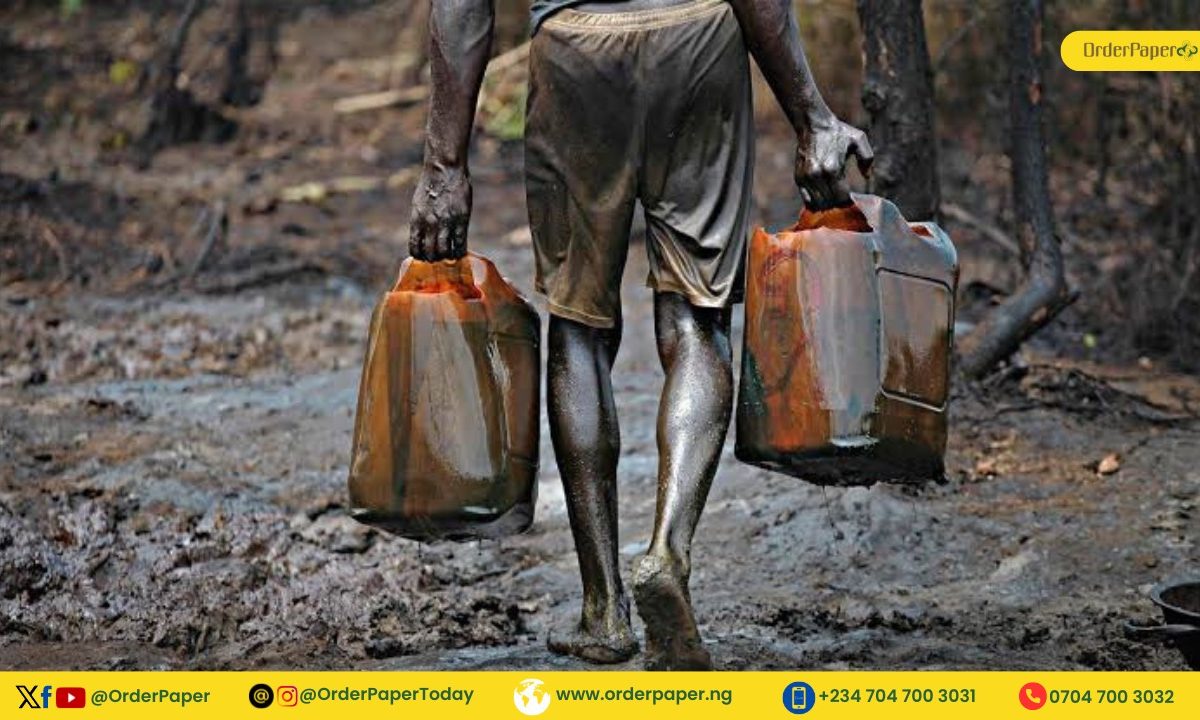What is the significance or value of having abundant solid mineral resources if Nigeria continues to be ravaged by illegal mining activities, resulting in substantial economic revenue losses, environmental degradation, and the endangerment of lives and property security?

In August 2023, four illegal miners were killed following the collapse of a mining site in Kogo Kadage village in the Yadagungume area of Ningi Local Government Area of Bauchi State.
Less than 6 months following that tragic event, the 16th of January 2024, became etched in the memories of all and sundry who were around Bodija, Ibadan, Oyo State. At about 7:45 pm, a loud noise was heard, followed by a bang, causing many to flee their homes, offices, and immediate surroundings in a helter-skelter manner. It was later found out that the cause of the blast was not a bomb but explosives stored for use in illegal mining operations. This caused the loss of multiple lives and properties, also leaving scores injured.
READ ALSO: PERSPECTIVE: Safeguarding communities in the energy transition
Is illegal mining treated with kid gloves or simply intractable?
Illegal mining in mineral-rich Nigeria is common and has been a major concern. However, it is mostly done in remote areas where arrests are elusive and where safety procedures are rarely followed.
Several bans on illegal mining have not been matched with actual enforcement and illegal miners have carried on business as usual with little or no consequences. The mining regulations have roles for various stakeholders including the Mines Inspectorate Department of the Ministry of Solid Minerals Development, the Directorate of State Security (DSS), and the Nigerian Police Force. However, it is safe to say that there has been no impact.
It has also been observed that some of these illegal miners include foreigners, especially Chinese, Malian, and Nigerien nationals.
To solve the problem of illegal mining, former President Muhammadu Buhari October 2020, set up a mining police, comprising the Inspector-General of Police, Chief of Army Staff, National Security Adviser (NSA), and others, but barely a year later, the illegal act was noticed to have continued unabated.
One kind of intra-trade that often happens is the trade of illegally mined gold in exchange for weapons, and the other is the use of women and girls in these illicit activities.
READ ALSO: PERSPECTIVE: Artisanal mining as empowerment for youths
Chinks in the environment and holes in government pocket
Illegal mining operations not only harm the environment and damage host communities but also have a significant economic impact on Nigeria. The lack of formal oversight allows criminals to evade taxes and royalties, leading to substantial revenue losses for the government. These lost revenues could otherwise be invested in critical sectors such as infrastructure development, education, and healthcare.
Nigeria’s north, especially Kaduna, Katsina, Kebbi, Kogi, Nasarawa, Niger, Plateau, and Zamfara states, are particularly hard hit by the blight of illegal mining. An estimated 80% of mining in these areas is conducted illegally on an artisanal basis, involving over two million people who depend on it for survival.
Sadly, despite the volume of activities in the mining fields and the increasing number of miners, the revenue to the public purse from the sector has remained a paltry sum.
The 2023 revenue projection for minerals and mining was capped at ₦3.64Billion, which is less than one percent of the ₦3.38Trillion projected for oil revenue within the same period.
The Federal Government revealed that the country loses $9bn to illegal mining annually, with the little revenue in the sector coming from the three percent royalty paid by the few licensed miners.
Illegal mining activities not only harm the economy directly but also indirectly by disrupting the operations of legally registered mining companies that lawfully bring revenue to the government. Illegal miners often encroach upon legal mining sites, leading to conflicts and jeopardising the security of workers. Furthermore, the presence of illegal miners hampers efforts to attract foreign direct investment in the mining sector, hindering its growth and potential.
READ ALSO: Reps seek swift intervention in Nigeria-Cameroon refugee crisis over gold mining
The National Assembly must rise to the challenge
The time has come for the federal government to pay more attention to the mining sector and minimise loss of revenue. Every dime will count given the parlous state of the economy. At the moment, our minerals contribute less than 1% to GDP.
How can we scale up the value chain in terms of exploration, mining, and processing? Where are the lapidaries — mining labs used for processing and cutting precious stones such as emerald, topaz, amethyst, and onyx? Beyond artisanal output, we need large-scale and industrial licensees to mine commercial quantities of our minerals.
With all the minerals that Nigeria is blessed with, the country should aim to compete in the international market by standing up to the economic saboteurs and implementing relevant government policies – all the policies are available in black and white; getting the job done does not require any rocket science. We should avoid red tape and unnecessary bureaucracy which are usually our biggest headaches in implementing strategic reforms.
The National Assembly must put it on its agenda to close all policy loopholes and call out all responsible implementation parties to do the needful. The time to babysit things affecting our economy is now in the past. The National Assembly must now take the front seat to correct these ills.
READ ALSO: Ibadan explosion: Reps call for probe, arrest of suspects
Words must match action
Illegal mining in Nigeria is a complicated problem with negative consequences for the environment, economy, and society. The extensive environmental degradation, loss of government revenue, and undermining of legal mining operations demand urgent attention and concerted efforts to curb this illegal practice. By adopting a comprehensive approach to tackling illegal mining, Nigeria can safeguard its natural resources, stimulate economic growth, and ensure a sustainable future for the nation.



